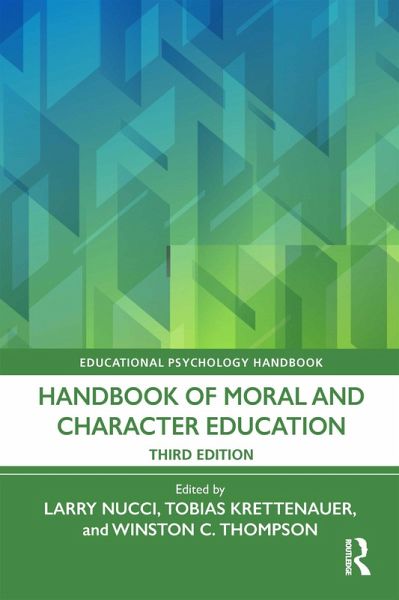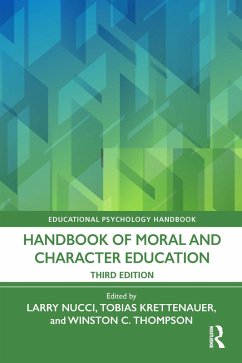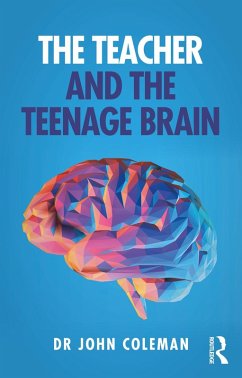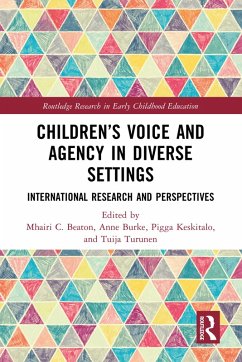
Handbook of Moral and Character Education (eBook, ePUB)
Versandkostenfrei!
Sofort per Download lieferbar
103,95 €
inkl. MwSt.
Weitere Ausgaben:

PAYBACK Punkte
52 °P sammeln!
The Handbook of Moral and Character Education offers a definitive, state-of-the-art synthesis of leading scholarship in moral and character education. A subject of international interest and the focus of numerous governmental curricular mandates, the moral development and character formation of students are increasingly recognized as an essential component of a well-rounded schooling experience. This comprehensive volume explores the philosophical, psychological, and educational issues that define the field; links robust theoretical and empirical foundations to effective classroom practice; hi...
The Handbook of Moral and Character Education offers a definitive, state-of-the-art synthesis of leading scholarship in moral and character education. A subject of international interest and the focus of numerous governmental curricular mandates, the moral development and character formation of students are increasingly recognized as an essential component of a well-rounded schooling experience. This comprehensive volume explores the philosophical, psychological, and educational issues that define the field; links robust theoretical and empirical foundations to effective classroom practice; highlights implications for civic engagement and social justice; and follows the lessons learned from moral and character education into contexts outside of schools.
Fully revised and updated, this third edition features a refreshed research base, coverage of digital pedagogies, out-of-school programs, and informal learning, and discussions about the role of reason, emotion, cultural processes, and citizenship/democracy in education. Further, the book's substantive emphasis on diversity and equity in the field results in greater racial, ethnic, and geographic representation among contributing authors, inclusion of historically marginalized school communities and student identities, and coverage of practices such as transformative social and emotional learning (SEL), restorative justice, and education for environmental sustainability.
Fully revised and updated, this third edition features a refreshed research base, coverage of digital pedagogies, out-of-school programs, and informal learning, and discussions about the role of reason, emotion, cultural processes, and citizenship/democracy in education. Further, the book's substantive emphasis on diversity and equity in the field results in greater racial, ethnic, and geographic representation among contributing authors, inclusion of historically marginalized school communities and student identities, and coverage of practices such as transformative social and emotional learning (SEL), restorative justice, and education for environmental sustainability.
Dieser Download kann aus rechtlichen Gründen nur mit Rechnungsadresse in A, B, BG, CY, CZ, D, DK, EW, E, FIN, F, GR, HR, H, IRL, I, LT, L, LR, M, NL, PL, P, R, S, SLO, SK ausgeliefert werden.













